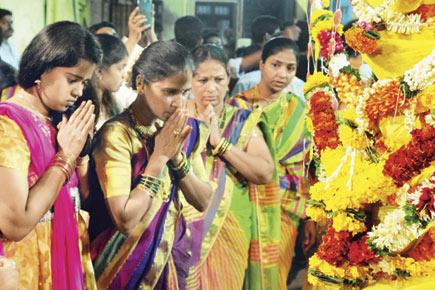I am always a bit flabbergasted reading tweets or hearing people saying “I am proud of being a Hindu” or “Garv sey kaho hum Hindu hain”

 I am always a bit flabbergasted reading tweets or hearing people saying “I am proud of being a Hindu” or “Garv sey kaho hum Hindu hain”. It is by accident of birth that one is born a Hindu. One really had no choice in the matter. Converting to Hindusim is not really easy. So how does one claim pride in something that was fate or fortuity?
I am always a bit flabbergasted reading tweets or hearing people saying “I am proud of being a Hindu” or “Garv sey kaho hum Hindu hain”. It is by accident of birth that one is born a Hindu. One really had no choice in the matter. Converting to Hindusim is not really easy. So how does one claim pride in something that was fate or fortuity?
ADVERTISEMENT
But many sane and sensible people puff up their chests and claim to be very proud to be Hindus. Actually in the same breath, they say “proud to be an Indian”. Again not many exercised the choice to be Indian after 1947. Most of us were born here. Just as we were born a male or a female. One didn’t really exercise a choice to be born either, right?

Many of us are comfortable being in the space accorded by family, religion, occupation, sex and race. The problems arise when one has to choose to move out of the safety of the cocoon to question the rules, the demarcations, and the inter-connected boundaries. Representation Pic
Many of us are comfortable being in the space accorded by family, religion, occupation, sex and race. The problems arise when one has to choose to move out of the safety of the cocoon to question the rules, the demarcations, and the inter-connected boundaries. As soon as you question, there is a barrage of criticism that comes your way. You are a faux-Hindu, a ‘sickular’, a shame on your caste, a blot on your gender. And no, a thick skin does not help. Even the hardiest of us ends up saying, ‘proud to be Hindu’ or ‘proud to be a woman’, or ‘proud to be a Brahmin/Rajput/Kayastha etc., just in case one is abandoned by one and all. And if you really don’t want anything to do with caste and religion, just pick up a T-shirt that says ‘Punjabi by nature’ or a bumper sticker that says ‘Jat Boy’. That’s got less to do with caste than with being oh-so-cool.
Oh well! “We are like this wonly,” as Rajanikant would say. I am as comfortable being a Hindu as I am being a South Indian living in Delhi and as I am being a woman professional. There are zones of discomfort in all the identities that makes me feel not-so-proud several times in the day. It doesn’t lead me to shed any of these identities. I rebel as much as I can and try to bring about incremental changes to the best of my ability. But does that make me feel proud or less proud, not really.
In the 1980s, on a visit to the Sri Sharada Peetham in Sringeri, I was invited along with my parents to have darshan of the 35th Shankaracharya. Since I was not aware of the rules that women/girls have to be in sarees or half sarees (long skirt and blouse with a dupatta), I had not dressed appropriately. I was asked to sit in the back row and hope that the Shankaracharya would not spot me. But when it was my turn, the Shankaracharya pointedly asked me why I was dressed in churidar kameez. He asked if I was a North Indian. It was asked politely but in Kannada. My rebellious instinct was to ask, what if I am, would you not meet me? And it was on the tip of my tongue to ask, if I was a North Indian, I wouldn’t have understood your question. It was put down but I wasn’t taking the bait. I replied in Kannada that I live in the north and Hindu girls wore this attire which was perfectly respectable. Creditably, he did not get annoyed and accepted my point of view with grace. The rules of the temple bothered me but he displayed tolerance and respect of other cultures and inclusiveness that I continue to seek in my religion. There are rules in many religions that prevent women from entering certain areas in places of worship, or insist on covering ones heads and similar customs. You could feel ashamed or conform or try to change those customs and traditions. Of course there are many things about Hinduism like other religions that are troublesome, just as there are practices and customs in all religions that are abhorring. You could find answers in becoming agnostic, atheistic or convert to some other religion. None of which is easy, by the way.
Religiosity like patriotism is hard to restrict within boundaries. It is open to a myriad of interpretations. As for the twists and turns in the way we practice our religion, I for one am supremely glad that we have no single leader in Hinduism. We can seek comfort in the fact that we have a billion ways of practicing the religion that will not conform to rules of any sage, leader, guru or god. In that probably is Hinduism’s biggest strength, not in perfunctory pride expressed in fear or confusion or a mix of the two.
Smita Prakash is Editor, News at Asian News International. You can follow her on twitter @smitaprakash
 Subscribe today by clicking the link and stay updated with the latest news!" Click here!
Subscribe today by clicking the link and stay updated with the latest news!" Click here!






